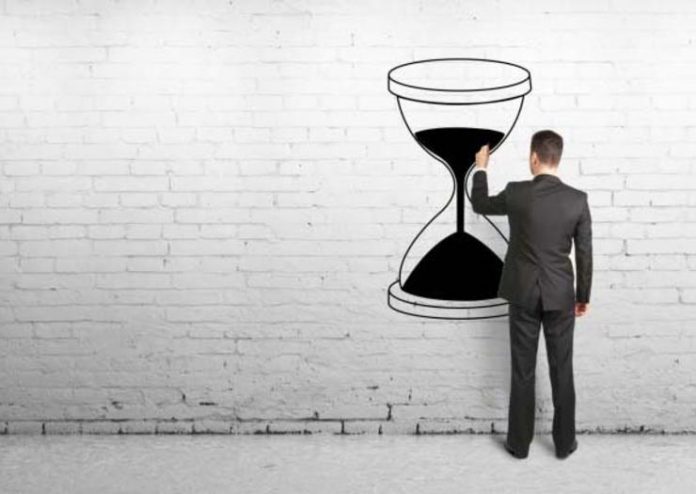With your busy schedule, it can sometimes feel impossible to find any additional time in the day. According to experts on the psychology of time management, making the best use of your time—“temporal autonomy,” as they call it—is the key to living better on 24 hours a day.
But that’s easier said than done. When you’re crunched for time, you’re more likely to slack on maintaining healthy habits.
But some of the busiest guys we know—our go-to fitness and nutrition experts—are also the healthiest. So we asked them for their success secrets.
Here are 10 pro tips for keeping your body and mind up to snuff when you’re slammed.
Nearly every expert we asked gave the same resounding answer.
“It’s so easy to lose track of time while watching TV because that’s exactly what it’s designed to do,” says Todd Durkin, C.S.C.S., renowned strength coach to professional athletes, and owner of FitnessQuest 10 in San Diego.
Of course, a little relaxation is healthy, so you don’t have to ditch the boob tube entirely. “Limit yourself to 30 minutes a day, or just weekends,” Durkin suggests. “You’ll find more hours, instead of just minutes.”
2. ENGAGE YOUR MIND DURING DOWNTIME
“It’s easy to think of time in the car, on the train, or on the bus commuting to work as time that’s already occupied—but it isn’t,” says Durkin.
That’s why he likes to put on podcasts or audio books to maximize the minutes he otherwise wouldn’t use. “If you want to stay on top of your game,” Durkin says, “you need to keep learning, and this is an extra-efficient way to do it.”
3. LIMIT YOUR EMAILS
How often do you start a task only to be derailed by an incoming email? Set specific times to check your messages, suggests Craig Ballantyne, C.S.C.S., M.S., author of Turbulence Training.
Though he has managed to only open his email once or twice a day—lucky guy!—focus on hitting a more modest goal at first, like once every half hour.
The limit will help you concentrate on what you’re doing so you can be faster and more efficient with the time you spend on work, he says.
4. PRIORITIZE YOUR TASKS
5. PLAN OUT YOUR WEEK
Sure, it will take some time now, but pay dividends later. “Every Sunday I focus on my wins, losses, and ‘a-ha’ moments, as well as my goals for the upcoming week,” says Durkin. “This gives me clarity to think about how I can prioritize and maximize my time.”
Having a concrete plan for the week can help you stay on task and be efficient. “Without a strategy, you waste more time wondering what you should be doing than actually doing it,” Durkin says.
6. TRAIN WHENEVER YOU CAN
Whether you have 45 minutes or only 5, you can still fit a quick workout in, says Jeremy Shore, lead educator at Dynamax Medicine Balls. “When I’m ultra busy, I train in short bursts of 3 to 5 minutes throughout the day until I can add them all up into one full workout,” he says.
Worried about sweating your way through the day? Your mini-workouts don’t have to be high-intensity.
Take 5 minutes in the morning for mobility work, for example. Add 5 more in the afternoon for foam rolling.
By the time you get to the gym—even if you only have 15 minutes to exercise—you’re already half way done.
7. TAKE ADVANTAGE OF INTERVALS
A Tabata interval workout takes less than 5 minutes and can rev your metabolism and keep it there for more than 30 minutes after you leave the gym, according to research from the American College of Sports Medicine.
“String a few fast-paced interval workouts back to back and you can be done in almost no time without sacrificing any progress,” says Shore.
8. CUT THE PRE-WORKOUT CHITCHAT
9. BE YOUR OWN DRILL SERGEANT
If you allow yourself 5-minute breaks here and there, they add up over the course of the day. So be a strict timekeeper: “If you have 30 minutes to allow yourself some downtime, make sure it’s just 30 minutes,” says Ballantyne.
“If you want to be in bed by a certain hour, make sure you do it.”
10. GET UP EARLIER
“This is the single biggest thing you can do to have an amazing 2016,” says Ballantyne. An early start gives you time to get up and moving before you’re inundated with your other responsibilities, he says.
You don’t have to rise at the crack of dawn right away. Start by setting your alarm for 15 minutes earlier than you normally do. “Get up and prepare a healthy lunch, write something important, practice the presentation you have to give just one more time, or even squeeze in a short workout,” he advises.



